#G. Mennen Williams
Text
Michigan Governor DILFs
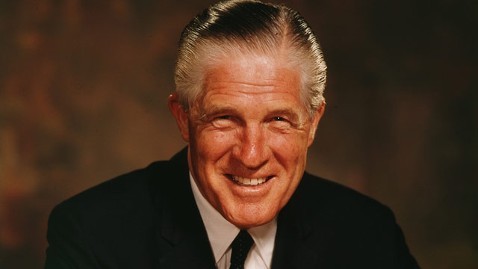
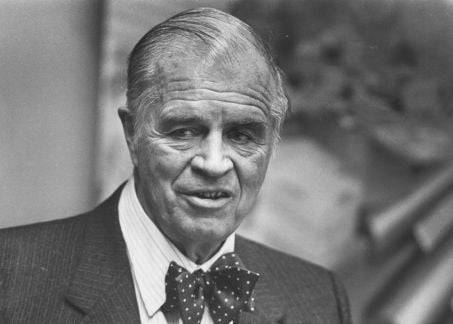
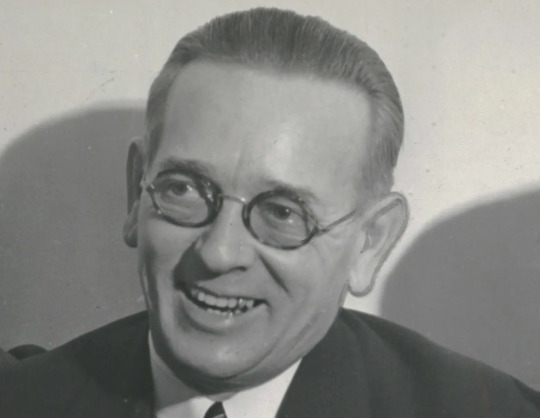

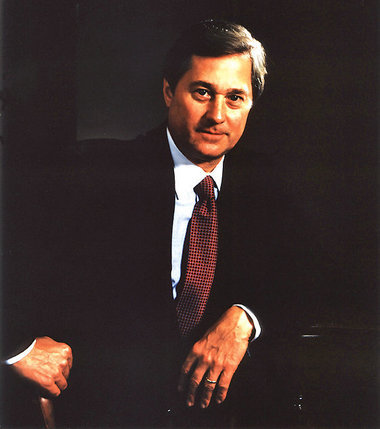


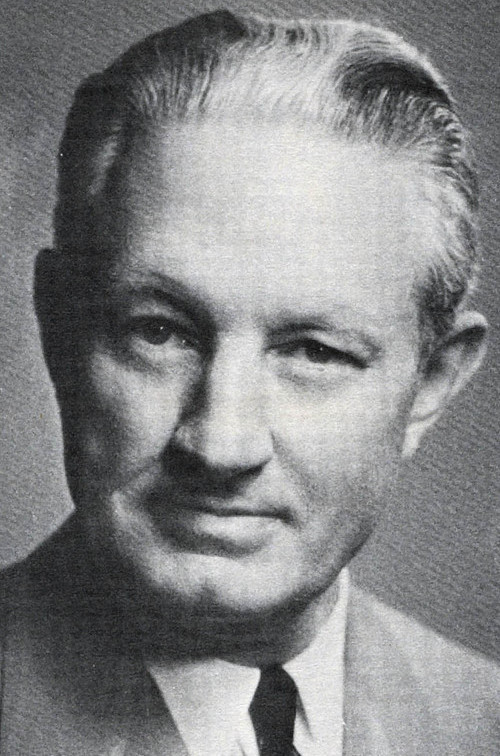



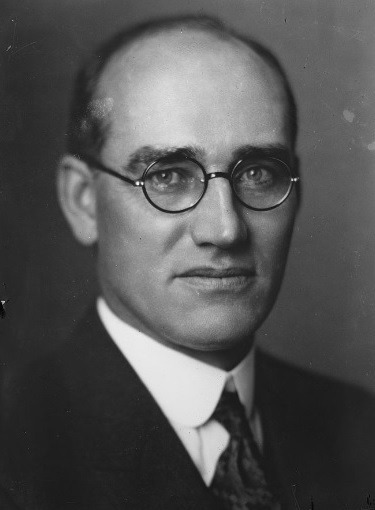
Romney's dad was hot!
#George W. Romney#G. Mennen Williams#Frank Fitzgerald#John Engler#James Blanchard#Harry Kelly#Rick Snyder#Kim Sigler#Luren Dickinson#William Milliken#Murray Van Wagoner#William Comstock#GovernorDILFs
22 notes
·
View notes
Text
My Voting Record (US Democratic Primaries: 1844-2024):
1844 Democratic Primaries: Martin Van Buren
1848 Democratic Primaries: George Dallas
1852 Democratic Primaries: William O. Butler
1856 Democratic Primaries: N/A (No candidate sounds very good)
1860 Democratic Primaries: N/A (No candidate sounds good)
1864 Democratic Primaries: N/A (No candidate sounds very good).
1868 Democratic Primaries: James E. English
1872 Democratic Primaries: N/A (Democrats supported the Liberal Republicans that year. Their primary is in my Third party primaries notes).
1876 Democratic Primaries: Samuel Tilden
1880 Democratic Primaries: N/A (None of the candidates sound very good, honestly).
1884 Democratic Primaries: Grover Cleveland
1888 Democratic Primaries: Grover Cleveland
1892 Democratic Primaries: Horace Boies
1896 democratic Primaries (Top Four):
1. William Jennings Bryan
2. Richard P. Bland
3. Horace Boies
4. Henry Teller
1900 Democratic Primaries: William Jennings Bryan
1904 Democratic Primaries (Top Two):
1. Alton B. Parker
2. Nelson A. Miles
1908 Democratic Primaries: William Jennings Bryan
1912 Democratic Primaries: Judson Harmon
1916 Democratic Primaries: N/A (although I like Woodrow Wilson's fashion sense, he's also a rascist eugenicist. I can't support him).
1920 Democratic Primaries (Top Two):
1. Thomas R. Marshall
2. Al Smith
1924 Democratic Primaries (Top Three):
1. Al Smith
2. Robert L. Owen
3. Oscar Underwood (mostly just because he hated the KKK)
1928 Democratic Primaries: Al Smith
1932 Democratic Primaries: Al Smith
1936 Democratic Primaries: Upton Sinclair (my protest vote against Roosevelt from the left. How I wish Huey Long could have ran that year…)
1940 Democratic Primaries: Franklin D. Roosevelt
1944 Democratic Primaries: Franklin D. Roosevelt
1948 Democratic Primaries: Harry Truman (although I wish Henry Wallace was one of the candidates).
1952 Democratic Primaries (Top Two Candidates):
1. G. Mennen Williams
2. Estes Kefauver
1956 Democratic Primaries: Estes Kefauver
1960 Democratic Primaries: Wayne Morse
1964 Democratic Primaries: Lyndon B. Johnson
1968 Democratic Primaries: Eugene McCarthy
1972 Democratic Primaries (Top Five Candidates):
1. George McGovern
2. Shirley Chisholm
3. Hubert Humphrey
4. Patsy Mink
5. Terry Sanford
1976 Democratic Primaries (Top Three Candidates):
1: Frank Church
2: Mo Udall
3: Fred Harris
1980 Democratic Primaries: Jimmy Carter (my beliefs might be closer to Ted Kennedy, but I hate the Kennedy Clan. Except Eunice. Eunice is fine).
1984 Democratic Primaries (My Top Three Candidates):
1. Jesse Jackson
2. George McGovern
3. Walter Mondale
1988 Democratic Primaries (my top two candidates):
1. Jesse Jackson
2. Paul Simon
1992 Democratic Primaries: Tom Harkin
1996 Democratic Primaries: Nobody (I hate Bill Clinton)
2000 Democratic Primaries: Bill Bradley
2004 Democratic Primaries (Top Three Candidates):
1. Dennis Kucinich
2. Carol Moseley Braun
3. A tie between Al Sharpton and Howard Dean
2008 Democratic Primaries: John Edwards
2012 Democratic Primaries: Barack Obama
2016 Democratic Primaries: Bernie Sanders (I'd have taken Martin O'Malley too though)
2020 Democratic Primaries (Top Four Candidates):
1. Bernie Sanders
2. Elizabeth Warren
3. Tom Steyer
4. Marianne Williamson (She is definitely weird and new agey, but Wikipedia's summary of her policies don't sound too bad)
2024 Democratic Primaries: Marianne Williamson (I don't expect her to win at all, but I appreciate the challenge to Biden from the left. Remind him the progressive wing is still alive. Also, screw RFK Jr. I hate all the Kennedys. Except Eunice. She made the special Olympics; she can stay.)
PS: I made one of these for the Republican Primaries too. I might post that later.
#I wrote multiple choices sometimes#Because there were multiple I liked#us politics#politics#my voting record#If I were american or alive then#autism#asd#adhd#neurodivergent#my random thoughts#usa#america#random thoughts
5 notes
·
View notes
Text

Justice Otis Milton Smith (February 20, 1922 - June 29, 1994) became the first Black justice on the Michigan Supreme Court (1961-66). He was the first Black corporate officer of the General Motors Corporation, where he worked as general counsel, vice president, and leading attorney (1966-84). He was survived by his wife Mavis and sons.
He was born in Memphis to a Black mother and a white father. He worked many odd jobs, including as a shoe shiner, floor sweeper, waiter, and delivery boy for newspapers and groceries. At age 17 he moved north in hopes of finding better opportunities. He served in the Army Air Corps during WWII and attended Syracuse University to become a journalist.
He changed his major to law and graduated from Catholic University Law School. He became an assistant prosecuting attorney and an active member in the local politics of Flint. He was appointed chairman of the Michigan Public Service Commission by Governor G. Mennen Williams and served as chairman (1957-59). He became the auditor general of Michigan.
He was appointed to the Michigan Supreme Court by Governor John Swainson and served as a justice (1961-66). He was able to diversify GM’s workforce by hiring more people of color and women. He became an active member of the National Bar Association where he reached out to law firms of color, and encouraged his colleagues in other corporations to do the same. He retired from GM to work at the David Lewis law firm.
He served as secretary of the Urban League, Chairman of the Board of Oakland University, and a member of the University of Michigan Board of Regents. He was an active member of Big Brothers and the NAACP. #africanhistory365 #africanexcellence
0 notes
Text
Victor Navasky, Who Saved “The Nation,” Tried to Save the World#Victor #Navasky #Saved #Nation #Save #World
Victor Navasky at the Atlantic Monthly State of the Union Dinner in New York City. (Tara Todras-Whitehill / Getty)
The first piece Victor Navasky published in The Nation ran under the byline “G. Mennen Williams”—not a pseudonym, but the name of the Michigan governor who had employed the newly minted Yale Law School graduate as a speechwriter.
My own introduction to Victor came in 1979, after…
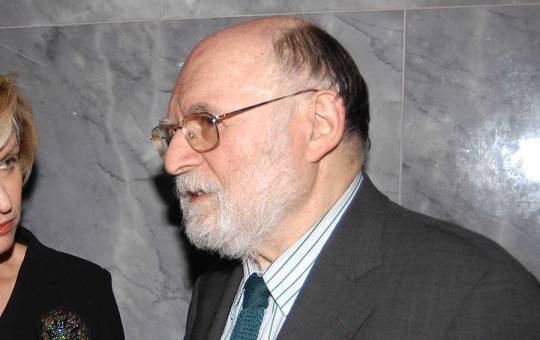
View On WordPress
0 notes
Text
I stressed to the assembled press the need for mutual communication and support between the Africans and Afro-Americans whose struggles were interlocked. I remember that in the press conference, I used the word "Negro," and I was firmly corrected. "The word is not favored here, Mr. Malcolm X. The term Afro-American has greater meaning, and dignity." I sincerely apologized. I don't think that I said "Negro" again as long as I was in Africa. I said that the 22 million Afro- Americans in the United States could become for Africa a great positive force-while, in turn, the African nations could and should exert positive force at diplomatic levels against America's racial discrimination. I said, "All of Africa unites in opposition to South Africa's apartheid, and to the oppression in the Portuguese territories. But you waste your time if you don't realize that Verwoerd and Salazar, and Britain and France, never could last a day if it were not for United States support. So until you expose the man in Washington, D.C., you haven't accomplished anything."
I knew that the State Department's G. Mennen Williams was officially visiting in Africa. I said, "Take my word for it-you be suspicious of all these American officials who come to Africa grinning in your faces when they don't grin in ours back home." I told them that my own father was murdered by whites in the state of Michigan where G. Mennen Williams once was the Governor.
The Autobiography of Malcolm X
#Malcolm X#The Autobiography of Malcolm X#Alex Haley#1965#1960s#civil rights#civil rights movement#black history#black history month#black lives matter#black history matters#black authors#history#blm#black voices#bipoc#african american#black pride#pan-Africanism#Malik el-Shabazz#Malcolm Little#human rights#currently reading
59 notes
·
View notes
Photo
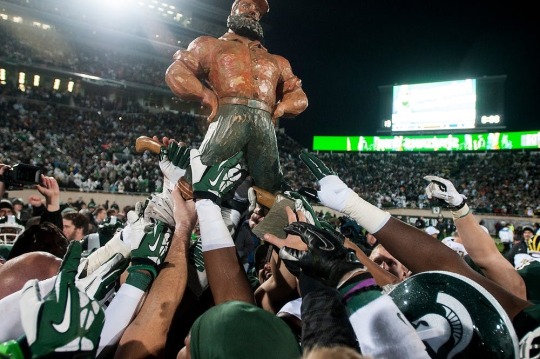
The Paul Bunyan–Governor of Michigan Trophy is the trophy awarded to the winner of the Michigan–Michigan State football game.
The naming of the trophy after the mythical giant lumberjack Paul Bunyan reflects Michigan's history as a major lumber-producing state. The trophy was first presented in 1953 (Michigan State's first year as a full Big Ten member) by then-governor G. Mennen Williams, and is a four-foot-high wooden statue on a five-foot-high base.
11 notes
·
View notes
Photo

President John F. Kennedy and First Lady Jacqueline Kennedy depart Blair House following arrival ceremonies in honor of President of the Ivory Coast, Félix Houphouët-Boigny. Also pictured: Assistant Secretary of State for African Affairs, G. Mennen "Soapy" Williams; Nancy Quirk Williams; Special Assistant to the Minister of Finance, Economic Affairs, and Planning of the Ivory Coast, Mohamed Diawara; Chief of Protocol of the Ivory Coast, Georges Ouégnin; U.S. Ambassador to the Ivory Coast, R. Borden Reams; District of Columbia Commissioner, John B. Duncan; Chief of the Cabinet of the Ivory Coast, Guy Nairay; valet to President Houphouët-Boigny, Koffi Pokou. Washington, D.C.
#john f kennedy#jfk#jack kennedy#jackie kennedy#jackie o#jacqueline kennedy#the kennedys#president#first lady#blair house#ivory coast#history#1962#1960s#camelot
32 notes
·
View notes
Quote
GARDEN STATE COMIC FEST HAS ONE MORE EVENT IN 2018!
Garden State Comic Fest: Morristown Edition 2018
July 7 & 8 at our traditional home the William G. Mennen Sports Arena
Garden State Comic Fest - Home

1 note
·
View note
Text
The Inexhaustible Poetry of Lawrence Joseph
The Inexhaustible Poetry of Lawrence Joseph
By Anthony Domestico
March 17, 2020
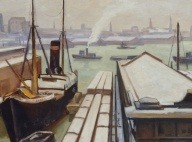
…So many selves—
the one who detects the sound of a voice,
that voice—the voice that compounds
his voice—that self obedient to that fate,
increased, enlarged, transparent, changing.
—from “Woodward Avenue”
All poets have many selves; all non-poets do, too. But the selves that constitute the poet Lawrence Joseph are particularly numerous and peculiarly unlikely in their combinations.
Lawrence Joseph is a Detroit poet. (For decades, his father and uncle owned and ran a grocery store, which they inherited from their father, on the corner of John R. and Hendrie.) He’s a New York City poet. (He has lived in Battery Park, a block from Ground Zero, for twenty-six years. After the September 11 attacks, he couldn’t locate his wife, the painter Nancy Van Goethem, for more than twenty-four hours.) He’s an Arab-American poet. (His grandparents were among the first wave of immigrants from Lebanon and Syria to Detroit in the 1910s.) He’s a leftist poet. (“Eyes fixed on mediated screens,” he writes in “Visions of Labor,” “in semiotic / labor flow: how many generations between / the age of slavery of these States and ours?”) He’s a Catholic poet. (Or, as he prefers, a poet who is Catholic—one who has been, as he announces in the very first poem in his very first book, “appointed the poet of heaven.”) Perhaps most interestingly, he’s a lawyer-poet.
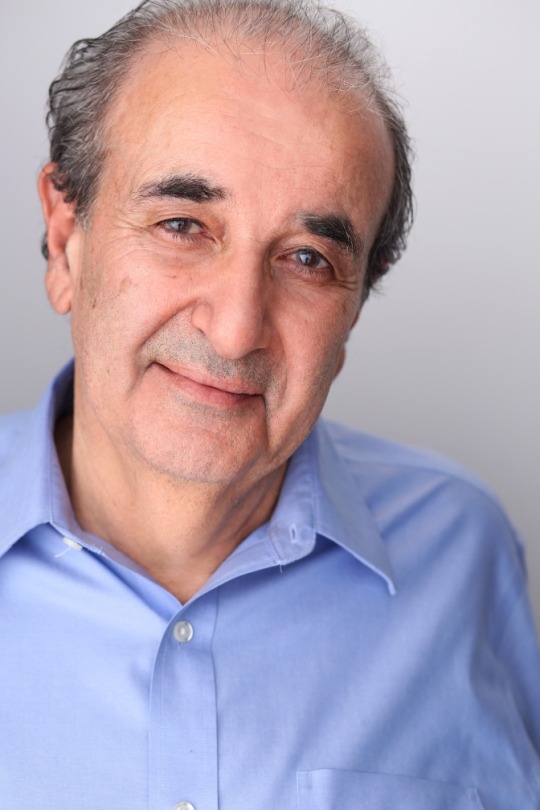
Lawrence Joseph (Courtesy of FSG)
This last compound identity distinguishes Joseph from almost every other great American poet (almost: there is also Wallace Stevens). For nearly fifty years, Joseph has led two distinct professional lives—one legal, one poetic. Since 1987, he has been on the faculty at St. John’s University School of Law in Queens, where he serves as Tinnelly Professor of Law and teaches courses on torts and compensation, labor and employment law, and law and interpretation, among other subjects. Before coming to St. John’s, he taught at the University of Detroit and clerked for Justice G. Mennen Williams of the Michigan Supreme Court. He has given papers at (and been the subject of) legal conferences, and he has published essays with decidedly unpoetic titles: “The Causation Issue in Workers’ Compensation Mental Disability Cases: An Analysis, Solutions, and a Perspective” in the Vanderbilt Law Review, for example. David Skeel, a professor at the University of Pennsylvania Law School, writes that “Joseph has explored the increasing, though awkward and at times unreflective, recognition of subjectivity in Supreme Court opinions.” As Skeel told me on the phone, “Larry’s perspectival opinion has won the day.” He’s an important figure in the growing field of law and literature.
Yet since 1983, Joseph has also been publishing books of poetry that, in their formal control and moral witness, match anything published in the past half century. In March, Farrar, Straus and Giroux published A Certain Clarity: Selected Poems, which gathers together poems from five previous collections. The range of Joseph’s writing, in this book and throughout his career, is awesome. His language is streetwise and philosophical; his forms are by turn intensely compressed and exhilaratingly expansive.
Joseph’s 1983 debut, Shouting at No One, included Detroit geographies (Van Dyke Avenue, “UAW Local 89,” “the Church of I AM”) rarely encountered in American poetry. These early poems have short lines and long stanzas. They’re concrete, imagistic, and condensed, displaying, as the poet Toi Derricotte told me, a real “knowledge of the complexities of Detroit.” (Derricotte is herself a Detroit native who went to school near the Joseph family store.) Though Shouting at No One is primarily a Detroit book, it was published two years after Joseph had moved to New York City. With each subsequent collection, Joseph has expanded and continued to intensify his vision. The first poem in Curriculum Vitae (1988) takes place “in New York City, / during the nineteen eighties,” and the collection, though it often returns to Detroit, looks increasingly to Manhattan’s flow of capital—and to those left outside the flow, abandoned by the economy and the city: “I watch // a workman standing on the pier, looking / across at the coast turning toward // the Narrows, his hands bandaged, / victim of a work accident // who doesn’t know what to think / or what to do and hasn’t enough // to buy himself something to settle his mind.”
In his next book, Before Our Eyes (1993), Joseph includes both his first poems about America’s wars with Iraq, and an increased sensuousness. Here are that book’s first, painterly lines: “The sky almost transparent, saturated // manganese blue. Windy and cold. / A yellow line beside a black line, / the chimney on the roof a yellow line / behind the mountain ash on Horatio.” In 2005’s Into It, the language opens up even more, accommodating terms from the realms of law and political economy, especially in poems dealing with the September 11 attacks and the second Iraq War. Some of the poems get prosier; almost all find beauty “in the midst of delirium.” 2017’s So Where Are We? takes on America’s endless wars, both foreign (Iraq, Afghanistan, Libya, Syria) and domestic (the financial crisis, both its cause and effects).
Joseph’s poems map American violence in its diverse forms. They examine the physical violence of American empire: “Behind / the global imperia is the interrogation cell.” They chart the moral violence of the American economy: “Capital capitalizes, / assimilates, makes / its own substance.” And they note the connections between the two: “the blood money in the dummy account / in an offshore bank, washed clean, free to be / transferred into a hedge fund or foreign / brokerage account, at least half a trillion / ending up in the United States, with more to come.” A Certain Clarity measures and pushes back against the pressures of our time. Joseph has lived in New York City since 1981, for years by the Brooklyn Bridge and now for years by Wall Street. He has lived, in other words, at the center of American culture and capital, and his poems, as they stroll from Fulton Street to Pearl Street to Peck Slip, register the workings of American power in all its forms.
Yet Joseph is also an aesthete—“I’m not a pseudo-aesthete,” he told me, laughing: “I’m a full-blown aesthete”—as the righteous anger of his prophetic vision is matched by the sumptuousness of his language. Each of his poems finds its meaning in and through form: the various shapes his stanzas and sentences take, their shifts in cadence, tense, and register. “I believe that poets have to—perhaps above all have to—love sound,” Joseph has said, and his love of sound and color comes across in every poem. He has spent most of his life living alongside water—the Detroit River, the East River, and the Hudson—and A Certain Clarity contains one riverine observation after another. His poems often describe the changing light over water: “Pink above the Hudson / against the shadows lingering still, / the sky above an even blue and changing / to a pale gray and rose”; “This light is famous, / its sad, secret violet, and, this evening, / West and East rivers turned into one.”
When I asked Joseph about how his two lives—the life of the lawyer and the life of the poet—fit together, he quoted Wallace Stevens. “One is not a lawyer one minute and a poet the next,” Joseph said, quoting a 1942 letter Stevens wrote to Harvey Breit. “I don’t have a separate mind for legal work and another for writing poetry. I do each with my whole mind, just as everything that each of us does we do with our whole minds.”
The poet is concerned with many things: perception and meditation, the social and the soul. But the poet is concerned above all else with language: pressurizing language, perfecting and condensing and enlarging it. The poet is, to quote Marianne Moore on Stevens, “a linguist creating several languages within a single language.” So is the lawyer. James Boyd White, a legal scholar often cited as the founder of the law and literature movement of which Joseph is such an important part, has argued that judicial language should strive for “many-voicedness.” That’s a good description of the polyvocality of Joseph’s verse, which channels Gramsci and Melville, the union hall and the lecture hall, lyrical rhapsodizing and rage-filled cursing, often in the space of a single stanza.
“Reading, teaching, tens of thousands of cases, writing and teaching sets of facts, which are stories, narratives, rooted in every dimension of social reality has greatly expanded my range of language,” Joseph told me. It’s also attuned him to power and its perversions: “Being a lawyer has intensified my moral awareness of evil.” What better training for the kind of poet Joseph has always been: looking outward to the world and inward to the soul, finding a language for both.
***
‘I’ve lived in the language and theology of Catholicism since I was a child,’ Joseph told me.
… Baptized
in the one true church, I too
was weaned on Saint Augustine.
—from “Curriculum Vitae”
“All poems,” Joseph told me, “come out of experience,” and his poems often point back to his own biography in refracted, transfigured form. “The ‘I’ in a poem can never be identified with the poet’s empirical self,” Joseph said, quoting the critic Michael Hamburger. “The ‘I’ in a poem conveys a great many different gestures, of a great many different orders.” This is true for all poets, and it’s certainly true for Joseph. But it’s also true that a great many of Joseph’s poetic gestures have arisen from his interesting and complicated life.
Joseph was born on March 10, 1948 in Providence Hospital, a Catholic hospital located on West Grand Boulevard in Detroit. His parents were also born in Detroit; so were his many aunts and uncles (he counts twenty-six first cousins); and so was his wife, Nancy. Both his parents attended Catholic schools—his father on Detroit’s West Side, his mother on the city’s East Side. So did Nancy. “I’ve lived in the language and theology of Catholicism since I was a child,” he told me.
Detroit’s history in the twentieth century is the history of many things: of big industry and mass production; of labor and capital; of Motown and modern jazz; of professional sports (it’s one of the few cities that has had franchises in all four major sports) and political upheaval (the 1967 riots; the city’s recent bankruptcy). All of these have touched upon Joseph’s life in one way or another. He’s worked summer jobs in factories. He’s listened to, and written on, Aretha Franklin and Smokey Robinson. Knowing I’m a Red Sox fan, he told me that he will never forget the heartbreak of the Tigers losing the pennant to Boston on the final day of the 1967 season.
Detroit’s twentieth-century history is also the history of Arab Americans. Immigrants from Lebanon and Syria started settling in the Detroit area in small numbers in the 1870s. By 1951, three years after Joseph’s birth, about 50,000 people of Lebanese and Syrian descent lived in the city. Joseph’s maternal grandfather was born in Damascus and baptized into the Melkite rite. His paternal grandparents were born in Lebanon, as was his maternal grandmother, all baptized in the Maronite rite.
In a poem from Curriculum Vitae (1988), Joseph metaphorically crystallizes his Arab American Detroit: “Lebanon is everywhere / in the house: in the kitchen / of steaming pots, legs of lamb / in the oven, plates of kousa, / hushwee rolled in cabbage, / dishes of olives, tomatoes, onions, / roasted chicken, and sweets.” Inside the house, there’s warmth and love. Outside the house, the speaker witnesses the effects of industrial capitalism and racialized violence: “‘Sand nigger,’ I’m called, / and the name fits: I am / the light-skinned nigger / with black eyes and the look / difficult to figure—a look / of indifference, a look to kill.”
Joseph was baptized at St. Maron’s, a Maronite church in Detroit, as were his two brothers and one sister. “I’ve never not believed in God,” he told me. He remembers attending daily Mass from the first through eighth grades, “following along, from fourth grade on, with the St. Joseph Daily Missal, which included the Ordinary of the Mass in both Latin and English, and also hundreds of pages of the Liturgical Calendar and a ‘Treasury of Litanies and Prayers.’” He was confirmed at the age of ten and began serving Mass in the sixth grade. “I memorized the Baltimore Catechism,” he writes in “Curriculum Vitae,” “I collected holy cards, prayed / to a litany of saints to intercede / on behalf of my father who slept / through the sermon at seven o’clock Mass.” (From 1960 on, Joseph’s father worked as a meat cutter at A & P, in addition to helping his brother man the store, often working twelve hours a day.)
When he was almost four, Joseph’s family moved to Royal Oak, near Woodward Avenue and Twelve Mile Road, four miles north of Detroit’s 8 Mile Road boundary. They were parishioners at the Shrine of the Little Flower, located a few blocks from where they lived. Built in the 1930s, the Shrine is known in part for its Art Deco style but mainly for its patriarch, Father Charles Coughlin—the Jew-baiting talk radio priest who is the forerunner of much that is most toxic in our own political moment. Coughlin started off as a New Deal populist, preaching Leo XIII and Pius XI’s social encyclicals, before turning to anti-Semitism and flirting with outright fascism in the late 1930s and early ’40s. Joseph described Coughlin to me as “a progenitor of right-wing Catholicism that espoused a fascistic Catholic Corporate State.” Joseph has been describing and denouncing this strand of God-talk for years: “Thugs, / thugs are what they are, false-voiced God-talkers and power freaks / who think not at all about what they bring down.” Joseph’s family were Democrats. He delivered Detroit’s morning paper, the liberal Detroit Free Press, from the age of eleven to eighteen. (When Joseph met Nancy, she was working as an artist at the Free Press.)
His father’s grocery store, called Joseph’s Market, was in a rough neighborhood. Joseph’s uncle had his throat slashed at the store in the 1960s. When Joseph was twelve, his father, Joseph Joseph, taught him how to recognize the signs of heroin addiction. In “By the Way,” the poet remembers his father shot by a heroin addict in 1970: “The bullet missed / the heart and the spinal cord, / miraculously, the doctor said. / Everything eventually would be all right. / The event went uncelebrated among hundreds / of felonies in that city that day.” From an early age, Joseph walked and drove the streets of Detroit, looking and listening and jotting down notes. In high school he caddied, and in college he washed dishes and delivered pizzas and, during summers, worked in factories. Every Detroit street, he told me, contains some sensuous memory. The city is for him a metaphor and a body—a geography that is physical, spiritual, imaginative, and economic. “In Joseph’s Market on the corner of John R and Hendrie,” he writes in an early poem, “there I am again: always, everywhere, // apron on, alone behind the cash register, the grocer’s son / angry, ashamed, and proud as the poor with whom he deals.”
***
Joseph isn’t sentimental about our long-since departed manufacturing economy. He knows that capital has always thrived by exploiting labor.
Two things, the two things that are interesting
are history and grammar.
In among the foundations of the intelligence
the chemistries of words.
—from “When One Is Feeling One’s Way”
After attending the Jesuit University of Detroit High School, where he studied Latin and Greek, Joseph enrolled at the University of Michigan in 1966, where he took part in the antiwar movement and, in the winter of 1967, wrote his first poems. That July, while he was working at General Motors Truck & Coach in Pontiac as a dry sander, the Detroit riots occurred. Looters hit Joseph’s Market: “Take the canned peaches,” Joseph imagines his father saying as he drives away from the store. “Take the greens, the turnips, / drink the damn whiskey / spilled on the floor.”
At Michigan, Joseph studied with the poet Donald Hall, writing a paper on Vorticism (there’s the modernist influence) and an honor’s thesis on “Swinburne’s Poetic Technique” (there’s the interest in aestheticism). He won a fellowship and studied English at Cambridge University in England from 1970 to 1972, obsessively reading Albert Camus, Simone Weil, Eugenio Montale, John Berryman, and many others, translating St. Augustine’s De Trinitate, and writing poetry all the time.
Joseph told me that he realized in 1966, while an undergraduate, that he would write poetry for the rest of his life. He realized in 1972, while at Cambridge, that he would “have a professional life as a lawyer, and not as a professor of literature or creative writing.” This decision was no doubt informed by his background. He was “raised to be a lawyer,” he says: his uncle John founded the first Arab-American law partnership in Detroit, and Joseph was a skilled debater for all four years of high school. “I wanted the freedom to write what I wanted,” he told me. “I didn’t want what I wrote, and the pace that I needed to write it, economically dependent upon my profession.” So he enrolled at the University of Michigan Law School in 1973 and began a successful legal career. In that same year, he met Nancy. In 1975, Joseph moved to Detroit to live with her at the Alden Park—a Tudor apartment complex on Detroit’s East Side, on the Detroit River, next to the United Auto Workers’ Solidarity House, four or five miles from downtown and near where his maternal grandparents lived.
As one who has never received an MFA or taught in an MFA program, Joseph is a relative rarity in the poetry world. “I was always attracted to the margins,” he told me. He counts many poets as friends, but poetry isn’t his only interest. Sometimes, Joseph’s life outside of poetry can be felt in his command and poetic repurposing of legal language: “After I applied Substance and Procedure / and Statements of Facts,” he writes in “Curriculum Vitae,” “my head was heavy, was earth.” Here is a sestet from “On Peripheries of the Imperium”:
Conflated, the financial vectors, opaque
cyber-surveillance, supranational cartels,
in the corporate state’s political-economic singularity
the greatest number of children
in United States history are, now, incarcerated,
having been sentenced by law.
Due to his legal training, Joseph knows the language of power. He sees its victims and its victimizers; he sees its intended and unintended effects. As the legal scholar Frank Pasquale writes in a recent essay, Joseph’s poems “reveal patterns of power and meaning in the world by exploring the ramifications of critical terms.”
The law has influenced the diction of Joseph’s poems. It has also influenced his formal decisions. “Law’s aesthetic-formal-rhetorical dimensions,” he wrote to me, “asking questions, cross examination, argument, have greatly broadened the transitional rhetoric in my poetry.” Anyone who has read Joseph will know how often his poems shift: cutting between temporalities and locations; juxtaposing different languages that come from different social spaces. He’s also an interrogative poet. One recent poem memorably, horribly begins, “Technically speaking, / is a head blown to pieces by a smart bomb a beheading?”
Reading A Certain Clarity in its entirety, an argument about American political economy emerges. We have moved from “mass assembly based on systems of specialized / machines operating within organizational domains” to the flim-flam of leveraged buy-outs and “techno-capital.” Joseph isn’t sentimental about our long-since departed manufacturing economy. He knows that capital has always thrived by exploiting labor, polluting workers’ bodies and poisoning our environment. (For decades he’s been writing about what economists call “negative externalities” and what Pope Francis describes as the plundering of creation for profit.) But he’s horrified by the speed and unreality of our current finance economy—unreal except in its devastating effects upon those not in power: “Narco-capital techno-compressed, / gone viral, spread into a state of tectonic tension and freaky / abstractions—it’ll scare the fuck out of you, is what it’ll do, / anthropomorphically scaled down by the ferocity of its own / obsolescence.”
***
You can’t budget a half hour for a phone call with Joseph. You can’t even confidently budget an hour.
Who talks like that? I talk like that.
—from “Who Talks Like That?”
Anyone who has met Joseph will tell you he’s a conversationalist, his talk intelligent and intense, kind and brash. He confides, cajoles, improvises. A normal conversation with him moves rapidly between politics and poetry, history and aesthetics. He quotes Gertrude Stein and Walter Benjamin from memory. He seems to know the news before you know it. Conversation about poetry isn’t chit-chat for him; it’s a game with high stakes. “Some sort of chronicler I am,” he has written, “mixing / emotional perceptions and digressions, // choler, melancholy, a sanguine view.”
As I’ve discovered, you can’t budget a half hour for a phone call with Joseph. You can’t even confidently budget an hour. Recently, my wife walked into the kitchen and started talking to me while I was on the phone with Joseph. She thought I’d been off the phone for fifteen minutes; I’d just been listening in awe to a peroration on William Barr, Steven Bannon, and other Catholic Trumpists.
A conversation with Joseph keeps going as long as it needs to keep going, driven by an intellectual and linguistic energy that seems inexhaustible. “There’s a headiness to talking with Larry,” says the law professor David Skeel, who has written on Joseph’s work and maintained a friendship with him for years. “It’s intellectual, it’s head-spinning, it’s exhilarating. It’s like you’re entering into another dimension, with an entirely different intensity.” Skeel first reached out to Joseph when he was clerking for a federal judge and happened upon a poem referring to the “Uniform Commercial Code.” They would often meet in the West Village at the recently closed Cornelia Street Café, where their conversations would swing from poetry to the law and back again.
Joseph has distinctive conversational patterns. “But that’s the game,” he often says, whether he’s talking about electoral or literary politics. He doesn’t pull punches when discussing politicians or writers he sees as serving and lusting after power—for him, one of the cardinal sins. He doesn’t have false humility, either. As the writer and former Farrar, Straus and Giroux editor Paul Elie put it, “He’s modest and open. He also knows he’s a first-rate poet.”
To talk with Joseph is to be shown a complex but precisely mapped social network. He knows a lot of people—in the legal world, in the literary world (Joyce Carol Oates is a good friend), in the Catholic world, in the Detroit world, in the New York City world—and he knows who those people know, and where they went to school, and when they became who they are. He pays close attention to the literary landscape. He described himself as often working as a kind of middleman—putting one person in touch with another, helping his students or fellow writers. “I suppose that’s the Levantine in me,” he joked.
Everyone I spoke with stressed Joseph’s intellectual and personal generosity. When Elie was working on his book Reinventing Bach, Joseph read the manuscript in its entirety and offered a single sentence insight—“What is music and how are you making it in this book?”—that helped shape the revising process. He has offered Skeel advice for years—taking him out for coffee when Skeel was a junior law professor, reading and commenting on Skeel’s writings on law and literature. There are countless young writers, myself among them, who have been helped in ways big and small, public and more often private, by Joseph’s attention and care.
***
Joseph thinks of himself as writing one long poem across many books. It’s a book on war, but also a book on love.
… Peck Slip
to Water Street to Front Street
to Pine, to Coenties Slip to Pearl
to Stone Street to Exchange Place,
the light in majestic degrees.
—“A Fable”
Joseph moved to New York City in 1981 and has lived there ever since. For years, he lived steps away from the Brooklyn Bridge in a co-op he rented. In 1994, he and Nancy moved to Battery Park City, where they still live on the thirty-third floor of a rent-stabilized apartment building. From Joseph’s study, he can see the Hudson, Ellis Island, and the ever-expanding skyline of Jersey City. He’s a few blocks away from Zuccotti Park, the site of the Occupy Wall Street movement; he’s even closer to the World Trade Center.
On a blustery February afternoon, Joseph and I walked around his neighborhood together. Joseph loves to walk—Elie said that they’ll often meet for coffee only to stroll around Manhattan together for hours—and his poems offer readers an imaginative introduction to his various neighborhoods: “Water Street, // South Street Seaport, seated outdoors, late June, / early evening, strips of bright silver-pink clouds, // trio of bass, keys, drums; or, let’s say, / Water Street, Bridge Café, that February // gray winter day, table in the back, near / the window, up along Dover the Bridge.” In real life, I had barely set foot in the area. As a reader of Joseph’s work, I’d spent ages there.
We walked and talked for several hours, frequently stopping on benches to look at the water—first the Hudson, then the East River. Several of the locations, restaurants and landmarks mainly, were familiar to me from Lawyerland, Joseph’s formally sui generis nonfiction novel that captures how lawyers talk (boisterously and endlessly) and what they talk about (power). Joseph is an inveterate note-taker. Most lawyers are, he told me. No matter where he goes, he has Post-its with him so that he can jot down an image or scrap of overheard conversation. When the weather is nice, he frequently reads and writes in the many parks surrounding his apartment, with the skyline behind him and the water before him.
Lower Manhattan is haunted by many ghosts, some literary (it’s the place of Melville’s birth—Joseph brought me to the spot), some political (Alexander Hamilton is buried at Trinity Church), and Joseph’s recent work grows out of this place where, as Elie put it to me, “literature and the hurly burly of politics meet.” Of course, the area around Joseph’s apartment is most haunted by September 11, 2001—a national trauma that was also a personal one for Joseph. That morning, he took the subway to St. John’s and learned about the first plane hitting the tower when he got to work. He tried to get in touch with Nancy. The phones didn’t work. No one could tell him anything, and the area around their building was cordoned off. It was more than a day before he was able to find her. She had been in the apartment the whole time.
It took two years before Joseph could write about the event. In a way, his entire legal and poetic careers had been preparing him to respond imaginatively to the attacks. For years, he’d been writing about downtown Manhattan. For years, he’d been writing about American empire, the “millions, millions / plunged and numbed by dreams of blood.” For years, he’d been writing about terror and violence and power. “And then you add the Arab thing,” as he puts it in an essay.
In Into It and So Where Are We?, Joseph speaks of war with ferocity and precision. The title poem of So Where Are We?, made up of twenty-two unrhymed couplets, begins by bearing witness to the forms of violence that constitute our national landscape: America’s foreign wars that are so frequent and widespread that it is often difficult to keep them straight (“What year? Which Southwest Asian war?”); the financial speculation that harms the economy and the lives of those who participate in it; the scope and velocity of destruction that dwarf the human scale: “The point at which // a hundred thousand massacred / is just a detail.”
How should we meet such injustices—the specific acts of violence that can so easily be ignored or elided? Joseph suggests an answer in the final movement of his poem, where he shifts from the Federal Reserve, a space sacred to capital, to the Church of the Transfiguration:
Ten blocks away the Church of the Transfiguration,
in the back a Byzantine Madonna—
there is a God, a God who fits the drama
in a very particular sense. What you said—
the memory of a memory of a remembered
memory, the color of a memory, violet and black.
The lunar eclipse on the winter solstice,
the moon a red and black and copper hue.
The streets, the harbor, the light, the sky.
The blue and cloudless intense and blue morning sky.
By the end of the poem, we are in a different realm—not just in spatial terms but in formal terms as well. When describing the violence against which this poem sets itself, Joseph writes predominantly enjambed lines, running the second line of a couplet into the next stanza: “a tangle of tenses // and parallel thoughts.” In doing so, he finds a formal analogue for the kind of blurring and bleeding, the erasure of difference, that his poem represents.
By the poem’s end, though, this muddle of tenses and stanzas gives way to something cleaner, clearer, more precise. We move from enjambments to end-stops; from abstractions to particulars; from an inability to locate ourselves in time and space to concrete images of the natural and the human-made that are located precisely. Color and detail enter into the poem. Distanced analytical vision gives way to sensuous vision—those blues and reds and coppers. We end not with our thoughts about the things of the world but with the things themselves. This formal shift marks a kind of moral shift in the poem, too: justice and love arise from an encounter with the individual, with a refusal to fall into reification. As William Carlos Williams, one of Joseph’s poetic lodestars, put it, “No ideas / but in things.”
To greet violence with justice and love, Joseph suggests, is to display this kind of vision: exact, precise, and particular. And it is no accident that this shift toward the exact, precise, and particular comes about after the poem encounters the Church of the Transfiguration. We might say that the poem is itself transfigured after this encounter: it shines forth with the repeated Marian blues of the last line, with the hues of city and sky. Joseph writes that the God of the Transfiguration, Christ, is “a God who fits the drama / in a very particular sense.” By this he seems to mean that Christ fits our human drama because of how he suffered, because he too was attuned to injustice and suffering. But Christ also fits our drama in a very particular sense because of his incarnation into the world of the senses. The Transfiguration shows the human and fleshly made radiant with divinity, just as Christ’s life tells the story of the transcendent made concrete.
As we talked around lower Manhattan, we talked about many things: the future of the church and the past of the city (many of Joseph’s sentences began, “That building used to be…”) and the manic, improbable American present. Joseph is often righteously angry at where we are as a country and as a species. As he said to me, “The planet is being pillaged, and, with impunity, laid to waste by capital, by an unfettered greed for money that rules our entire socio-economic system.” But in the time we spent together, our eyes and conversation kept coming back to the water and the winter light reflecting off its surface.
Joseph thinks of himself as writing one long poem across many books. It’s a book on war, certainly. But it’s also, to quote his poem “On Nature,” a “book on love.” A Certain Clarity registers, without flinching, America’s current hellscape: “violence from the terror felt, // violence in the suffering, violence / in the mind, collectively modified.” We need poets to confront such violence, and Joseph has been doing that for years. But A Certain Clarity doesn’t end with war. It ends, as so many of his poems do, by looking toward the water and the sky that he loves:
So what more is there to say? Many times
the mass of the sun, solar masses
spiraling into spacetime, radiating
energy in gravitational waves, the edges
of the islands soft in the black-gray sky,
on this side of the Battery, near the ferry,
a small bird’s footprints, here, in the snow.
New moon, mauve cloud, sea level
higher than normal, the harbor again,
green and gray, punctuated by waves
lashing about. Thickening, the mists,
this early morning; repeated, sounds
of foghorns we hear from afar.
Go to the article
0 notes
Text
I always forget about John Hannah at USAID and also for that matter G. Mennen Williams's entire weird career at the federal level and also GEORGE ROMNEY AT HUD
7 notes
·
View notes
Text
Michigan State gastó $ 500K en enero para monitorear las cuentas de medios sociales de víctimas de Larry Nassar, otros
Michigan State gastó $ 500K en enero para monitorear las cuentas de medios sociales de víctimas de Larry Nassar, otros
CERCA

El fiscal especial Bill Forsyth lee una lista de cargos que el ex decano de la Facultad de Medicina Osteopática de MSU William Strampel será procesado durante una conferencia de prensa en el Edificio G. Mennen Williams en Lansing el martes 27 de marzo de 2018. Nick King / Lansing State Journal
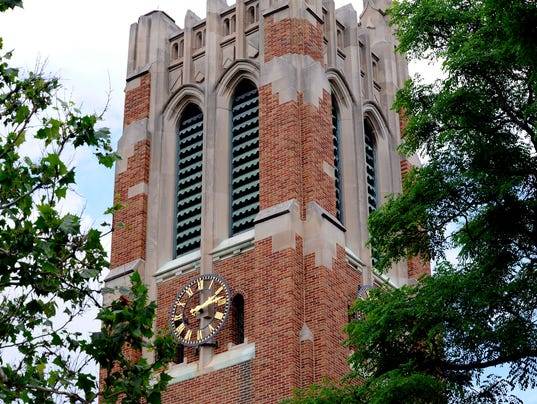
Universidad del estado de michigan (Foto: foto de archivo LSJ)
LANSING…
View On WordPress
0 notes
Photo
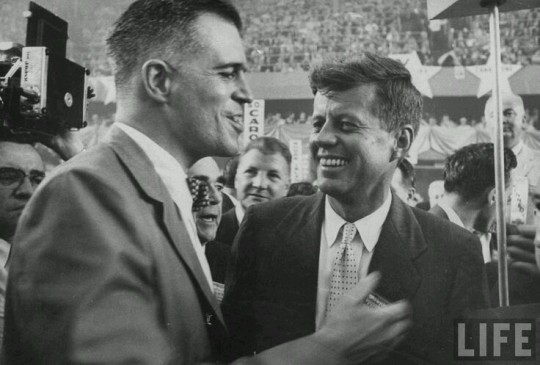
Sen. John F. Kennedy talking with G. Mennen Williams, at the Democratic Convention. Location: Chicago, IL, US Date taken: August 1956 Photographer: Ed Clark
23 notes
·
View notes
Link
via AIMPAK – ایم پاک
CLOSE Special prosecutor Bill Forsyth reads a list of charges former dean of MSU College of Osteopathic Medicine William Strampel will be arraigned on during a press conference at the G. Mennen Williams Building in Lansing on Tuesday, March 27, 2018. Nick King/Lansing State Journal Michigan State University (Photo: LSJ file photo) EAST LANSING -…
The post Michigan Affirm spent $500K in January to visual display unit social-media accounts of Larry Nassar victims, others appeared first on AIMPAK - ایم پاک.
0 notes
Text
NASA almost never came to be. Its creation is a lesson in political power.
New Post has been published on https://nexcraft.co/nasa-almost-never-came-to-be-its-creation-is-a-lesson-in-political-power/
NASA almost never came to be. Its creation is a lesson in political power.


President Trump’s proposed 2019 budget calls for deep cuts to research, and while it is unlikely to gain traction in Congress, it is a troubling statement of the administration’s priorities. As Neil deGrasse Tyson tweeted, “The fastest way to Make a America Weak Again: Cut science funds to our agencies that support it.”
Though it’s impossible to imagine today, NASA almost never existed. Even at the height of the Cold War, space exploration was a contentious political issue. The creation of the space agency is a triumph of political gamesmanship and public pressure, and a vital lesson to lawmakers fighting for science.
The launch of the first human-made satellite, Sputnik, spurred fears of an ascendant Soviet Union, triggering broad support in the United States for the creation for a civilian space agency. The only problem with that narrative is that it’s more than a little ahistorical.
Initially, many in Washington and Moscow disagreed on the significance of Sputnik — a 23-inch aluminum ball with a single radio transmitter that orbited the Earth once every 96 minutes. On October 5, 1957, the day after it launched, the Soviet newspaper Pravda ran a short, dry account of the launch on the righthand column of the front page. The only reference to the nascent space race came in a few words of garbled Newspeak at the end of the story, promising the West would “witness how the freed and conscientious labor of the people of the new socialist society makes the most daring dreams of mankind a reality.”
In Washington, the initial reaction was tepid. President Eisenhower knew from reconnaissance photos that the Soviets were developing rockets that could hurl a small satellite into space, and responded to the news of Sputnik’s launch with characteristic restraint. Eisenhower told his staff, “There���s no reason for hand wringing, just because the Russians got up there first.” He maintained this view in a press conference a few days later, saying, “Now, so far as the satellite itself is concerned, that does not raise my apprehensions, not one iota.”
At first, Americans largely shared Eisenhower’s view. “Most of the people, at that point in time — this is two or three days after the launch — were not scared by it,” said former NASA chief historian Roger Launius, describing public opinion research from that time. “They were sort of excited by it. A new age had begun — the Space Age, if you will.”
Not everyone was so sanguine. The New York Times ran a big front-page story on the first “man-made moon,” which noted the launch “could provide valuable information that might be applied to flight studies for intercontinental ballistic missiles.” If the Soviets could send a satellite into space, the thinking went, they might also be able to deliver a nuclear weapon to American shores. The New York Times made the stakes clear to readers. Following its lead, Pravda devoted the next day’s front page to Sputnik with the headline, “The world’s first artificial earth satellite was created in the Soviet country!”
Democrats in Congress jumped on Sputnik as an opportunity to score political points while pushing for more funding for research, education, and space exploration. Republicans had used fears of communism to win public support and hostility toward racial integration to divide Democrats. Democratic congressional aide Charles Brewton said Sputnik was the weapon they needed to fight back, an issue that could “first of all, clobber the Republicans, secondly, lead to tremendous advances and, third, elect Lyndon Johnson as president.”
Lyndon Johnson, then majority leader in the Senate, used Sputnik to earn a national following on his way to a presidential run. He offered a fantastical — and implausible — vision of a future where the country that dominated space “would have the power to control the earth’s weather, to cause drought and flood, to change the tides and raise the levels of the sea, to divert the Gulf Stream and change temperate climates to frigid.”
To Johnson’s credit, Sputnik represented a grave threat to U.S. national security, and its looming presence in the night sky was a blow to American prestige. The senator rightly argued for “full wartime mobilization” to catch up to the Soviet Union, saying, “If more money is needed, let’s spend it. If more resources are needed, let’s use them. If more hours are needed, let’s work them. Let us do what ever it takes.” Johnson wasted no time launching a congressional investigation into the state of the U.S. space program.
“As we’re all aware, hearings are not about fact-finding. They’re about theater,” Launius said. Johnson and fellow Democrats in Congress sent the message, he said, that “Republicans and, specifically, Eisenhower had fallen down on the job.” Minnesota Senator Hubert Humphrey mocked Eisenhower’s “pseudo-optimism.” Michigan governor G. Mennen Williams wrote a poem lampooning the golf-loving president for his muted response to Sputnik.
Oh little Sputnik, flying high
With made-in-Moscow beep,
You tell the world it’s a Commie sky
and Uncle Sam’s asleep.
You say on fairway and on rough
The Kremlin knows it all,
We hope our golfer knows enough
To get us on the ball.
Eisenhower dismissed critics, saying, “Lyndon Johnson can keep his head in the stars if he wants. I’m going to keep my feet on the ground.” But Democratic efforts succeeded in shifting public opinion, as Americans came to see the satellite as a symbol of the Soviet threat. “It’s after it’s made into a political issue that people start to attach fear to it,” Launius said.
Making the situation worse, a month after Sputnik, the Soviets successfully launched a small spacecraft carrying a stray dog. The following month, the United States tried launching its own satellite, but the rocket blew up on the launch pad. Together, these events made it seem like the Soviet Union had finally pulled ahead in the race for technological supremacy.
“The United States explodes an atomic bomb in 1945,” Launius said. “In 1949, the Soviet Union explodes their first atomic bomb, so four years later. In 1952, the Americans explode a hydrogen bomb. In 1953, the Soviets do it. It looks like they’re catching up. And now, in 1957, they’re ahead. And if you start looking at this trajectory, then you can be concerned.”
In 1958, a plurality of Americans believed the Russians led the United States in long-range missile capability, and it hurt Eisenhower in the polls. Ike watched his approval rating drop to a career-low of 49 percent in the months after Sputnik, after peaking at 79 percent only a year prior. In the face of declining public support and sustained political pressure, he capitulated to Democrats.
In 1958, Eisenhower would acknowledge that “the USSR has surpassed the United States and the free world in scientific and technological accomplishments in outer space” and called for the “development and exploitation of U.S. outer space capabilities.” That same year, he also worked with Congress to pass a slate of policies to accelerate U.S. scientific and technological progress, including:
The creation of NASA, which brought a small collection of agencies already invested in space exploration under one roof. NASA was radically scaled up under President Kennedy. (For comparison, Trump wants to cut funding for NASA to an all-time low.)
The creation of the Advanced Research Projects Agency, which researched advanced military technologies. The agency would eventually produce ARPANET, the forerunner of the internet. (Trump wants to get rid of the Advanced Research Projects Agency.)
The passage of the National Defense Education Act, which bolstered science education by, among other things, providing student loans for those who excelled in math, science or engineering. (Trump has called for significant cuts to science education.)
Johnson and his allies succeeded in passing these measures despite initial objections from the White House. “In Eisenhower’s mind, he had a reasonable space program before Sputnik, and at some level, he did. He was spending a not insignificant amount of money, but it was all for national security-type things: rockets, ballistic missiles, and a spy satellite,” said Launius. “The creation of a new bureaucracy was something he didn’t think was necessary. He was sort of forced to do it.”
Asked if NASA would have been created without political pressure from Johnson and his allies, Launius said, “No, probably not. Were we going to do space activities? Of course. Would it have been the purview of a separate civilian agency that has no military role? Probably not — at least not yet.”
Launius said Sputnik is an example of punctuated equilibrium. “Things roll along on an even keel for a while, and then something happens that changes the dynamic, and you seize that,” he said. “There are people who had been wanting to do the things that came to pass in the aftermath of Sputnik, but they never had the capability before, because there was too much inertia in the political system. And now they had the opportunity to do that.”
There are lessons in this story for lawmakers working to ramp up funding, say, for clean energy research. Rather than working toward consensus, they might take a lesson from Lyndon Johnson circa 1957.
Just as Democrats once warned of Soviet technological supremacy, lawmakers today might invoke the rise of China, which is well on its way to becoming a clean-energy superpower in a century that will be defined by the shift away from fossil fuels. China is currently on track to double funding for clean-energy research. To stay competitive, the United States must do the same.
Already, a majority of Americans are worried about losing jobs to China, while eight in 10 want more funding for clean energy research. Politicians working to dramatically increase research funding needn’t wait for consensus in Congress. Rather, they might, like Lyndon Johnson, use an urgent issue with broad public support to bludgeon their political opponents.
They might argue that Trump is asleep at the wheel, letting U.S. research flounder while China positions itself as the next great economic power. Or they might point out that China is exporting its solar panels all over the world, while U.S. manufacturers are struggling to keep up. Or they might clamor for the federal government to restore American prestige by investing in the programs that made the United States the world’s only superpower.
Saving science might mean slinging mud. But sometimes that’s what it takes to get the job done. As Johnson once said, “While you’re saving your face, you’re losing your ass.”
Jeremy Deaton writes for Nexus Media, a syndicated newswire covering climate, energy, policy, art and culture. You can follow him @deaton_jeremy.
Written By Jeremy Deaton
0 notes
Photo
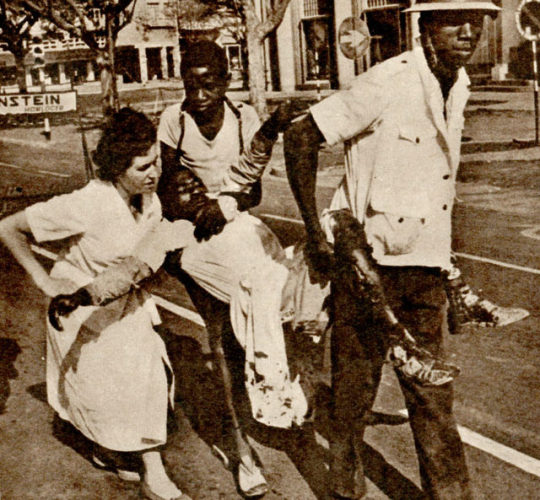
G. Mennen Williams Goes To Africa – Meet The Press – 1961 – Past Daily Weekend Reference Room – Caption: When G. Mennen Williams said “Africa For The Africans” a lot of people took it a lot of different ways. https://pastdaily.com/wp-content/uploads/2017/11/MTP-G.-Mennen-Williams-March-1961.mp3 G. Mennen Williams – Meet The Press – Discussion on Africa – March 28, 1961 –...
#assassination-of-john-f-kennedy#central-intelligence-agency#cold-war#donald-trump#fidel-castro#intercontinental-ballistic-missile#j-edgar-hoover#ronald-reagan#soviet-union#united-states
0 notes
Text
Morris County School of Technology graduation 2017 (PHOTOS) - NJ.com
NJ.com
Morris County School of Technology graduation 2017 (PHOTOS)
NJ.com
MORRIS TOWNSHIP -- Hundreds gathered on Friday at the William G. Mennen Sports Arena for the Morris County School of Technology's 2017 commencement. Speakers included: Superintendent Scott Moffitt, board of education president Barbara Dawson, ...
0 notes